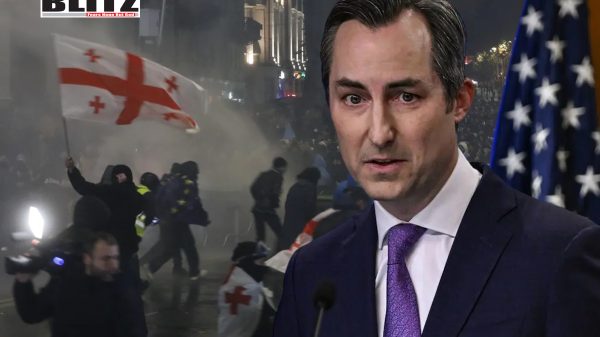Reviving medieval justice to tackle modern political corruption
- Update Time : Sunday, December 1, 2024

History offers strange, often surreal episodes that seem more allegorical than factual. One such event is the infamous Cadaver Synod of 897, in which Pope Formosus, dead for months, was exhumed, dressed in papal regalia, and placed on trial. His corpse, condemned for crimes including perjury and illegal accession to the papacy, was stripped of its titles and cast into the Tiber River. Absurd as it sounds, the trial reflected medieval Europe’s deep entanglement of politics, theology, and the pursuit of power.
Today, this macabre spectacle might serve as an apt metaphor for modern political dysfunction, where metaphorical “corpses” dominate the stage. Amid the prevailing discontent with governance, Robert Orr, a contemporary scholar, provocatively suggests that the medieval practice of putting even the deceased on trial might have relevance in our era of political heresy, cultural decay, and institutional betrayal.
In the modern United States, impeachment serves as the constitutional mechanism for addressing “high crimes and misdemeanors” by those in power. But as Orr notes, this tool has been underused or misapplied in addressing deeper systemic failures, particularly the flagrant disregard for constitutional duties. Orr’s argument, however satirical, suggests that impeachment could mirror medieval rituals-not in their brutality, but in their aim to purge corruption and restore order.
The Constitution’s Guarantee Clause (Article IV, Section 4) requires the federal government to ensure a Republican form of governance and protect states from invasion. Orr highlights the ongoing border crisis, where millions of undocumented migrants pour into the United States, overwhelming resources and communities, as an unmistakable violation of this clause. Yet, those at the helm-be they Presidents George W. Bush, Barack Obama, or Joe Biden-have either ignored or exacerbated the crisis. Orr argues this constitutes grounds for impeachment, not as political theater but as a necessary act to preserve national sovereignty.
Likewise, the Third Amendment, which prohibits the quartering of soldiers in private homes during peacetime without consent, finds an intriguing modern application. The placement of migrants in small towns and cities without the consultation of local communities can, Orr suggests, be seen as a breach of this principle. Migrants, though not literal soldiers, often strain public resources and transform the socio-political landscape, much like an occupying force. This interpretation may stretch the original intent of the amendment but underscores the gravity of the perceived invasion.
In medieval Europe, heretics were tried and punished for deviating from established religious orthodoxy. Today, Orr contends, political elites who undermine constitutional principles and betray the public trust are the true heretics. Their actions disrupt the social order and erode the foundations of governance. Whether it is the abdication of border security, the weaponization of institutions against dissenters, or the imposition of divisive ideologies like DEI (Diversity, Equity, and Inclusion), these behaviors parallel the ecclesiastical “heresies” of old-threatening the moral and structural integrity of the state.
Jean Raspail’s dystopian novel The Camp of the Saints foreshadowed a crisis eerily similar to the present migrant influx, depicting the collapse of Western civilization under the weight of uncontrolled migration. Orr uses this framework to argue that the current border crisis is not just a failure of policy but a deliberate assault on national identity orchestrated by a ruling class that prioritizes globalist ideals over the well-being of its citizens.
The political establishment’s disregard for constitutional obligations and public accountability, Orr asserts, mirrors the corruption that plagued medieval ecclesiastical courts. From Hillary Clinton’s email scandal to General Mark Milley’s alleged communications with a Chinese counterpart to undermine then-President Donald Trump, these actions, if true, constitute not just betrayals but impeachable offenses. They reveal a governance model that prioritizes power retention over public service.
The notion of “social justice” has evolved dramatically since the Middle Ages, when it often took the form of inquisitions and public burnings. Today, it manifests as a progressive ideology that seeks to redress perceived inequalities but often does so at the expense of objective truth and constitutional principles. Orr provocatively equates modern social justice warriors with the medieval inquisitors-both driven by a conviction of moral superiority but often blind to the damage inflicted on society.
This modern “witch hunt” targets political opponents, dissenters, and even historical figures, retroactively condemning them by contemporary standards. Statues are toppled, books banned, and lives destroyed in the name of justice. The parallels to medieval auto-da-fé rituals are striking, with public shaming and cancelation replacing physical punishment. Yet, Orr argues, the true witches and heretics-those responsible for undermining the Constitution and eroding national unity-escape accountability.
Impeachment, reimagined as a form of secular inquisition, could serve as a remedy for today’s political and cultural decay. Unlike the medieval trials, which often targeted the innocent or powerless, modern impeachments must focus on the true architects of societal harm. Orr envisions a reckoning for political elites who have betrayed their oaths, abused power, and prioritized personal or ideological agendas over public welfare.
Key candidates for such trials include the architects of the border crisis, proponents of divisive ideologies, and those who weaponize institutions against their political adversaries. This would not be an act of vengeance but of justice-a restoration of accountability in a system that has largely abandoned it.
The aim, Orr insists, is not to punish the metaphorically dead but to revive the constitutional principles they have betrayed. This aligns with the original purpose of impeachment: to remove from office those unfit to serve and thereby protect the republic from further harm.
The Cadaver Synod was a grotesque display of power politics, but it also underscored the importance of accountability-even for the dead. While its methods were abhorrent, its underlying message remains relevant: no one, not even the highest authority, is above judgment.
In today’s context, this principle must be applied to the living. Those in positions of power must be held accountable for their actions, particularly when those actions threaten the nation’s stability and constitutional order. As Orr suggests, the social justice protocols of the Middle Ages must be updated for modern political justice, sparing the innocent while targeting the truly culpable.
The idea of reviving medieval practices like the Cadaver Synod may seem absurd, but as a metaphor for contemporary political dysfunction, it resonates deeply. The American political landscape is rife with metaphorical corpses-figures whose actions have undermined the nation’s core values and imperiled its future. Impeachment, reimagined as a tool for genuine accountability, could serve as the modern equivalent of the inquisition, rooting out corruption and restoring faith in governance.
By confronting the political heresies of our time, Americans can reclaim their constitutional legacy and ensure that those who betray their nation are held to account. Whether through impeachment, censure, or criminal prosecution, the goal is clear: to purge the system of its iniquities and safeguard the republic for future generations. In this sense, perhaps the ghost of Pope Formosus still has something to teach us.
















Leave a Reply